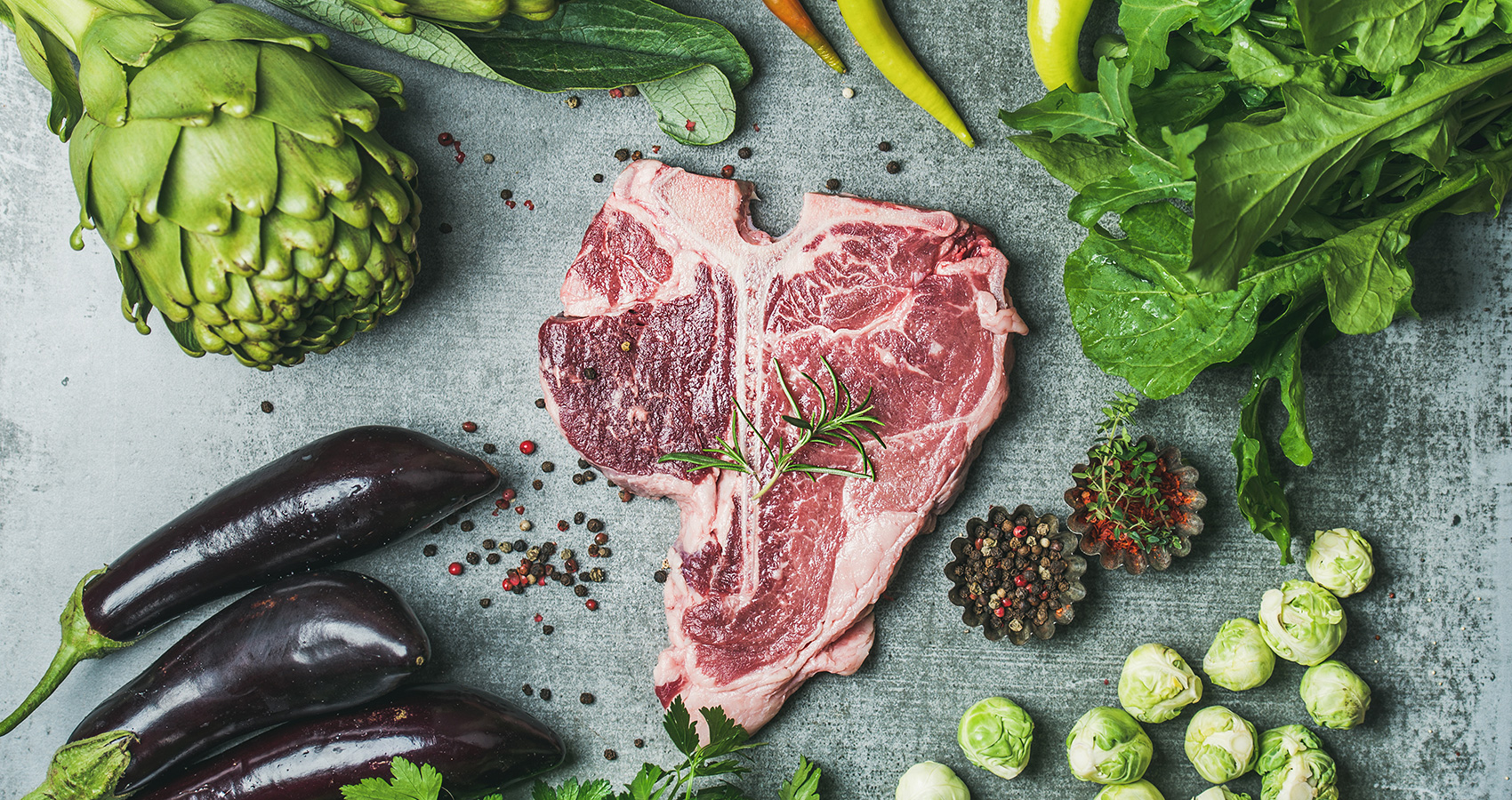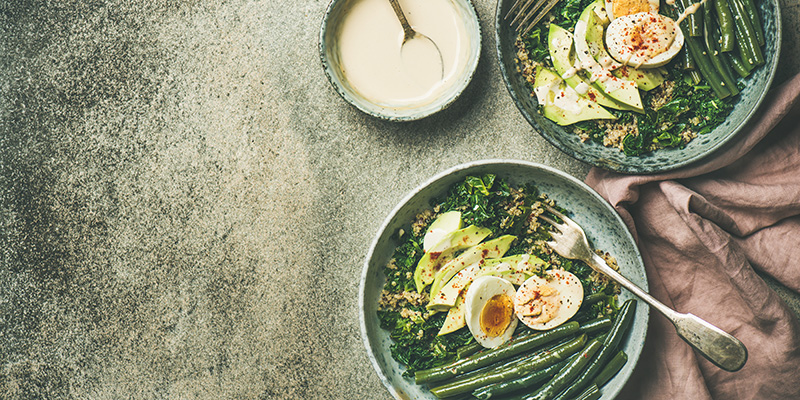Recommended daily protein intake for most adults maintaining a sedentary or average workout routine is 0.8 – 1.0 grams per kilogram of body weight (get your kilos by dividing your weight in pounds by 2.2). For higher levels of athletic training and lifting, 1.2 – 2.0 grams per kg of body weight may be more beneficial for muscle growth and recovery.
The Myth of Complete Proteins
Proteins are important for muscle synthesis but they are also the foundation of many cell and tissue structures, enzymes, hormones, and immune system components. For optimal function, the human body requires 20 amino acids – the building blocks of protein – from foods. Nine of these are essential, meaning that the body can’t create them on its own and we need to get them in our food choices.
Any animal-based product is going to contain all 20 amino acids; we refer to these protein sources as complete proteins. Many plant-based sources of protein, however – such as legumes, grains, and nuts – do not contain all 20 amino acids. So for decades, vegans and vegetarians were encouraged to pair certain foods together – such as rice and beans, or peanut butter on whole wheat – to make sure they achieved a complete protein at each meal.
What we have learned through modern-day research is that a varied, plant-based diet that meets an individual’s calorie requirements will include all of the amino acids essential to protein building. The key is to include 2-3 servings of vegetables, 5-6 servings of whole grains, and at least 2-3 servings of protein from legumes, nuts, or other plant-based proteins on a daily basis.
The take-away:
The main risk to insufficient protein intake is insufficient calorie intake; otherwise – skip the food rules, and make the meals you already enjoy eating without fear of not getting your AAs.
Choose a variety of whole grains, legumes, tofu products, and veggies daily to optimize amino acid intake. If it’s within your personal nutrition plan, choose dairy products such as eggs, milk, and yogurt to increase overall protein intake.
If you’re interested in learning more about your personal protein needs and food choices, speak to a registered dietitian about calculating your needs and evaluating your current intake.








